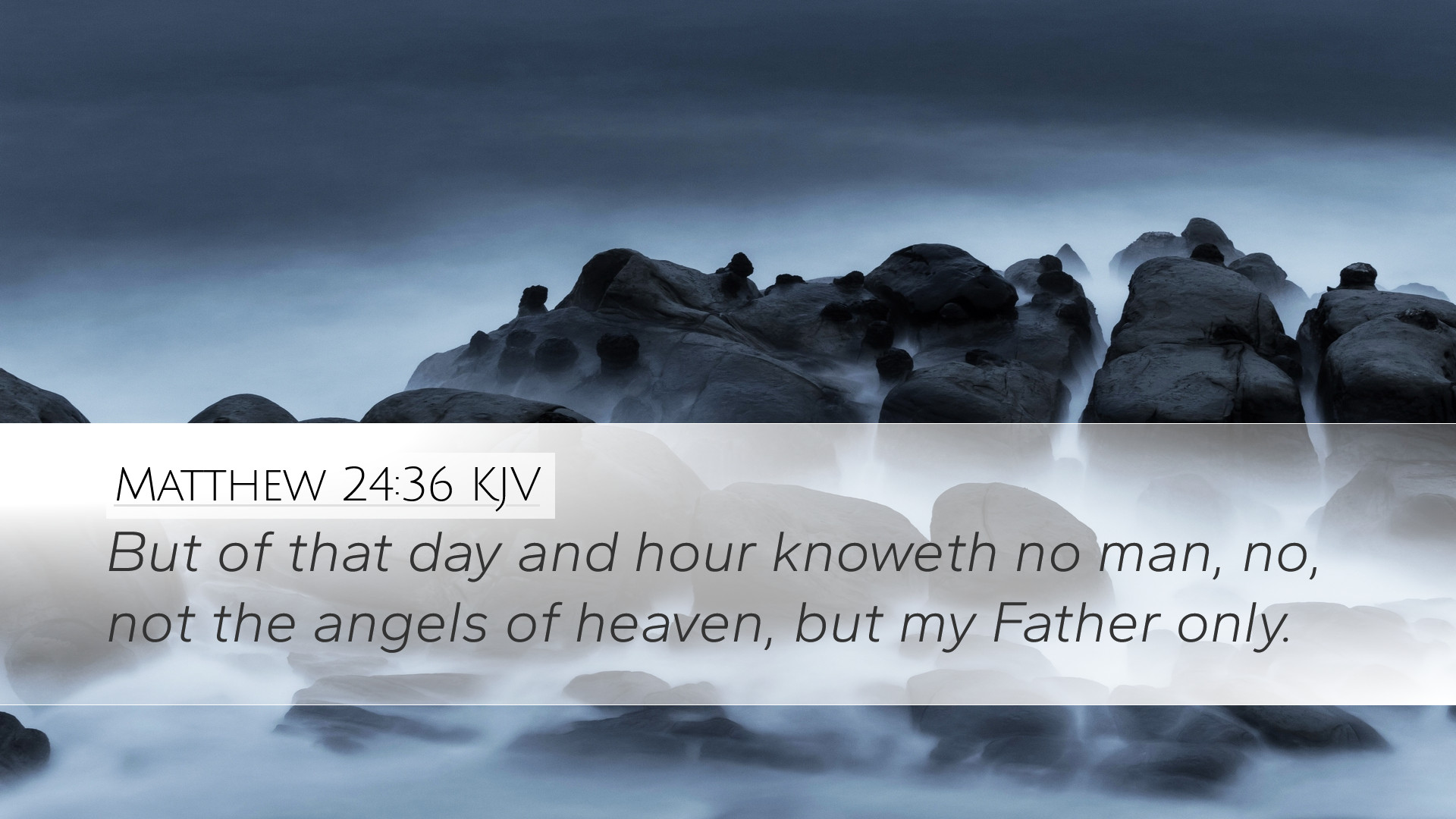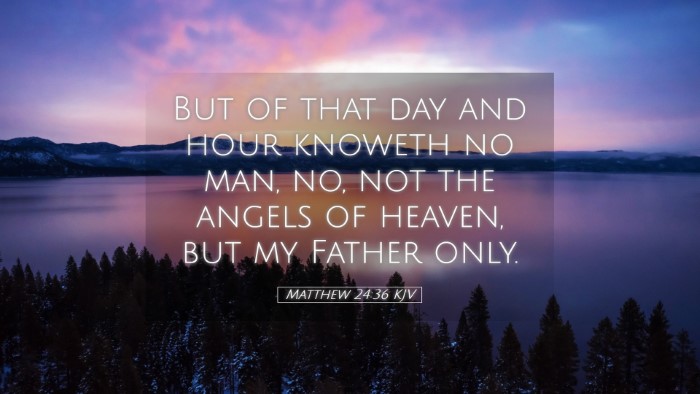Commentary on Matthew 24:36
Verse: "But of that day and hour no one knows, not even the angels of heaven, but My Father only." (Matthew 24:36, NKJV)
Introduction
This verse is pivotal in the discourse given by Jesus concerning His Second Coming and the end of the age. It emphasizes the mystery surrounding the exact timing of these events, which serves as a focal point for both theological reflection and practical application in the Christian life.
Exegesis
The clarity of this verse is unmatched; it distinctly states that the knowledge of the timing of the Second Coming is not revealed to anyone save for the Father. Here, we find several theological implications worth exploring.
Divine Sovereignty
Matthew Henry states that this verse illustrates God’s supreme authority over all creation, including the timeline of eschatological events. In an age where humans seek to predict and control circumstances, this verse reminds believers that only God is fully in control.
The Role of the Angels
Albert Barnes comments on the unique role of angels, noting that even spiritual beings, who dwell in God’s presence, do not possess this knowledge. This emphasizes the transcendence of God’s wisdom and the limitations of created beings, no matter how exalted.
The Incomprehensibility of God’s Plans
Adam Clarke highlights the profound nature of God's revelation. God has chosen to withhold this information, hinting at the depths of His wisdom that surpass human understanding. Believers are reminded of the importance of faith in the unseen.
Theological Implications
This verse has significant theological implications regarding the nature of prophecy and divine revelation.
-
Faith and Expectation:
The call for believers is active waiting—living in a state of readiness and obedience without the temptation to predict or speculate recklessly about Christ’s return.
-
The Watchfulness of Believers:
This verse forms part of a larger discourse that instructs believers to remain watchful, suggesting that our lack of knowledge should spur us onto greater vigilance and faithfulness (Matthew 24:42).
-
Humility before Divine Mystery:
Recognizing that only the Father knows the timing teaches believers humility in approaching God's mysteries, highlighting the limitation of human knowledge and the necessity of submission to divine wisdom.
Practical Application
In light of this verse, pastoral applications can be drawn to encourage Christians to lead lives that reflect expectancy and readiness.
-
Living Responsibly:
Pastors should encourage congregants to engage in responsible living—fulfilling their roles and responsibilities while keeping their focus on eternal realities.
-
Teaching about the End Times:
Understanding this verse helps shape a balanced view of eschatology that avoids sensationalism and fosters humility, promoting a faithful witness amid uncertainty.
-
Community Encouragement:
Fellow believers are to be reminders for each other to stay watchful, constantly encouraging each other towards love and good works in anticipation of Christ’s return.
Conclusion
Matthew 24:36 stands as a powerful testament to the sovereignty of God and the mystery surrounding His plans. By affirming that precise knowledge belongs to the Father alone, believers are called to live in readiness, adopting a posture of humility and faithfulness as they wait for the glorious return of Christ. This understanding fosters both a deep reverence for God's plans and a committed lifestyle characterized by vigilance and hope.


